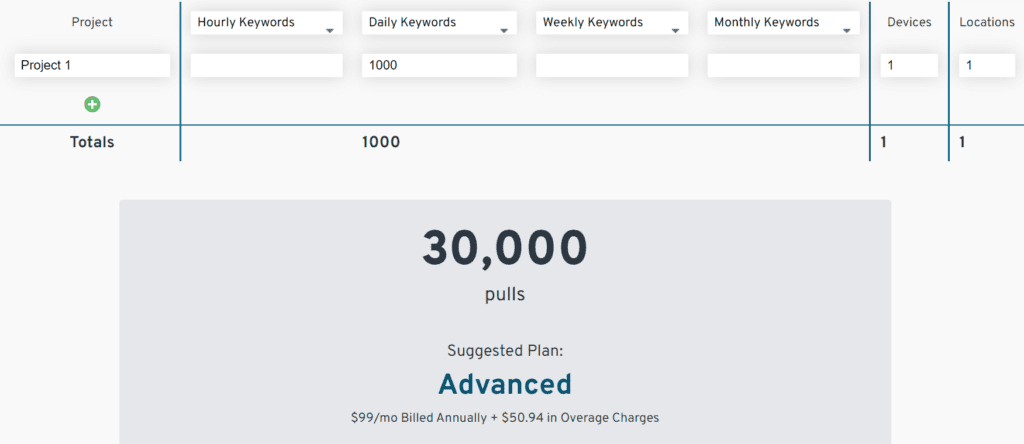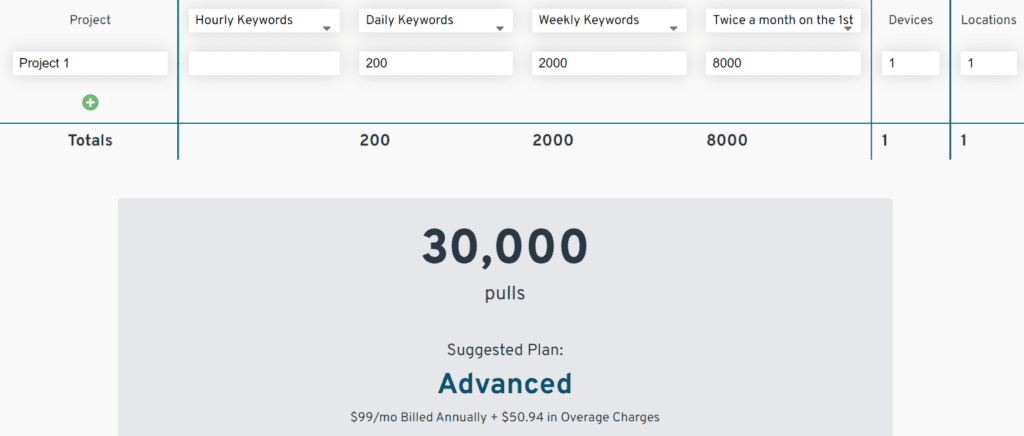Why do we track search engine rankings so closely and in such detail?
Every company and agency will have a different spin on this answer, of course, but in general it is because effective keyword monitoring will help you see exactly where your SEO efforts have delivered results and where you might need to refocus your strategies.
More than that, though, it will let you be more proactive about your rankings. You can find and go after opportunities related to keywords that are about to hit – or could deliver more traffic if they had a little more attention – rather than just reacting to sudden traffic losses. You can even see what your competition is doing and find out if there is something you can imitate/improve on.
Effective tracking is all about getting the most recent and most reliable data on your SERP performance, and the right tracking tools should give you the ability to monitor potentially thousands of keywords across multiple devices and locations.
So, the question is: just because you can track that many keywords, does that mean you should track that many keywords?
Every online marketer is going to have a different opinion on this. I can prove it. We asked a bunch of SEO people about it, and they gave us a lot of great answers. But we can get started by looking at some of the reasons tracking a larger number of keywords may be beneficial.
Get the Big Picture
Do you need to know how each and every keyword is performing at any given time?
No.
But each and every keyword does contribute to the bigger picture of your and online presence.
And modern SEO requires a broader outlook on keyword rankings.
While many clients have their trophy keywords and only want to know that they are ranking well for those words or phrases, the simple fact is that the changing SERPs and the sheer number of SERP features that push those organic rankings down, it’s time to expand your horizons to understand the full impact of your online marketing efforts.
Tunnel vision on a single keyword (or a few keywords) can only cause you to miss out on potentially huge opportunities.
When you look at the big picture, you can discover plenty of ways to get more traffic, reach new markets, and claim a bigger part of the search engine results pages.
Understand Your Online Visibility
A #1 ranking might not deliver the kind of visibility it once did. While it is still a huge part of an online marketing campaign, if there is so much information above it – between ads, snippets, People Also Ask, maps, and many other items, your potential customers have to get past a lot of SERP space before they see your listing.
When you increase the number of keywords that you track, you can start to see how visible you really are.
Because even if you have been pushed down the SERP for one keyword, you might be doing very well for a relevant and similar keyword. And that keyword might not have as many features or ads shoving you further down the page.
Own the Whole Topic
Instead of thinking about your online strategies in terms of individual keywords, it can be more effective to approach your goals as well-defined topics. And the best way to define your topics is with an extensive range of keywords.
Chances are, if you have a few keywords that rank in the top five, and they’re all somewhat related, then you are actually ranking for quite a few more. In other words, you’re gaining authority on a complete topic – and you may not even realize it.
Well, you may not be documenting it, anyway. But we’ll get into the importance of documenting all your successes in a minute.
For now, just assume that when you can show how you are ranking for an entire topic rather than just a couple keywords, you’ll be able to make some well-supported inferences about your authority on that topic.
Understand Traffic Spikes and Droughts
Tracking more keywords helps you spot – and maybe even predict – some sharp spikes or drops in your traffic.
If you’re only tracking a few keywords, you may not be able to explain why a website has suddenly lost a huge percentage of its traffic.
At the same time, if you don’t have a broader view of your rankings, you won’t be able to show how your efforts are directly related to a sudden spike in traffic. Was this a random occurrence? Or was it a direct result of your marketing efforts?
Do More with More Data
As you begin to track more keywords, you can use the data to support some of your other marketing strategies. For example, if you’re tracking more keywords, you can get a bigger list of People Also Ask questions, and you can use these industry-related queries to create some highly effective content.
Or, you could put the data to use in a powerful competitor analysis. When you start looking at more and more keywords, you can discover more and more companies who are ranking in the top ten instead of you. Are they getting a lot of keywords from these keywords? Are they owning more of the topic than you? Is there a small, up-and-coming company you need to keep an eye on? You discover all of this with a better competitive analysis.
Get the Credit You Deserve
There is going to be a lot of traffic coming to your website as your SEO efforts pay off. Are you able to show how much of that traffic is directly related to your work? Sure, your main keyword delivered 57% of your new traffic, but where is the other 43% coming from?
There’s a great chance that they’re coming from some very similar and closely related phrases, but if you want to prove that to your client or boss, you can do it by tracking a larger number of keywords.
Even if you aren’t specifically targeting all those keywords in your blogs and on your web pages, there’s a good chance that your work on the main keyword is going to bring some of those longer-tail words right along with it.
The only way to know for sure is if you are actually tracking those terms.
For example, let’s say you’re tracking some keywords related to essential oils: essential oils lavender, essential oils peppermint, etc.
Maybe you’re ranking pretty well for these terms. Maybe you’re at the bottom of page 1 for some of them, the top of page 2 for others, like lavender essential oils spray or lavender essential oil benefits.
You would never know that you were just on the cusp of getting traffic from these queries unless you were, in fact, tracking these terms.
Is This All Just a Shameless Plug?
Obviously, Nozzle is a rank tracker (well, it’s more of a SERP tracker, but we’ll talk about that another time), and the pricing structure is based on the number of keywords being tracked.
But let me be clear: this is NOT about encouraging users to up their pricing plan (I’ll leave that to the sales team). This IS about helping our users really get the most out of their plan.
Whether it’s a trial plan or a Pro plan, we’ve seen many users create a Project and only include 5 to 10 keywords that only pull data once a week.
There is a lot of potential data you’re missing out on if that’s the case.
On the other hand, maybe a user is tracking 500 keywords daily, when it might be more effective to track 10,000 keywords every other week.
You can easily increase the number of keywords you track – and stay at the exact same pricing level – just by changing the scheduling.
Here’s an example of how you could do that:

You could pull 1000 keywords a day and get a lot of great information and have a record of every shift that those rankings went through.

For the same price, you could mix up your schedule and track a lot more keywords.
You could even do a one time pull to grab the data for thousands of keywords to do the competitive analysis or discover the industry PAAs we mentioned above, and then go back to your regular monthly pulls.
Every website is different, of course, and every company has different needs when it comes to rank tracking. You might manage smaller websites, or you might have a streamlined approach to content marketing – in other words, you might need to track anywhere from a dozen keywords to thousands of them.
The key is to make sure you are getting a clear and correct understanding of your visibility in the search engines.
So, take a look at your pricing plan and use our calculator to determine how many data pulls you can get for your keywords and make sure you’re pushing Nozzle to the limit.
